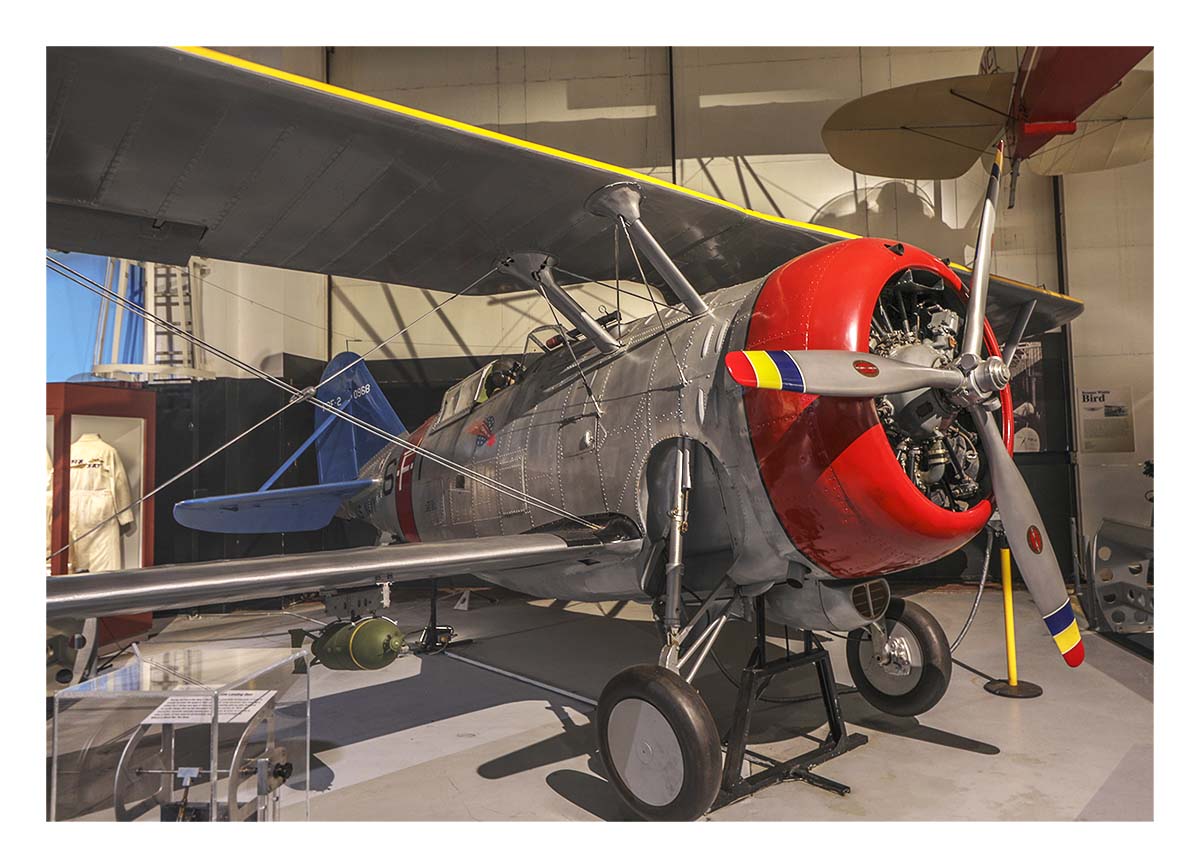
Grumman F3F-2 replica (1938).
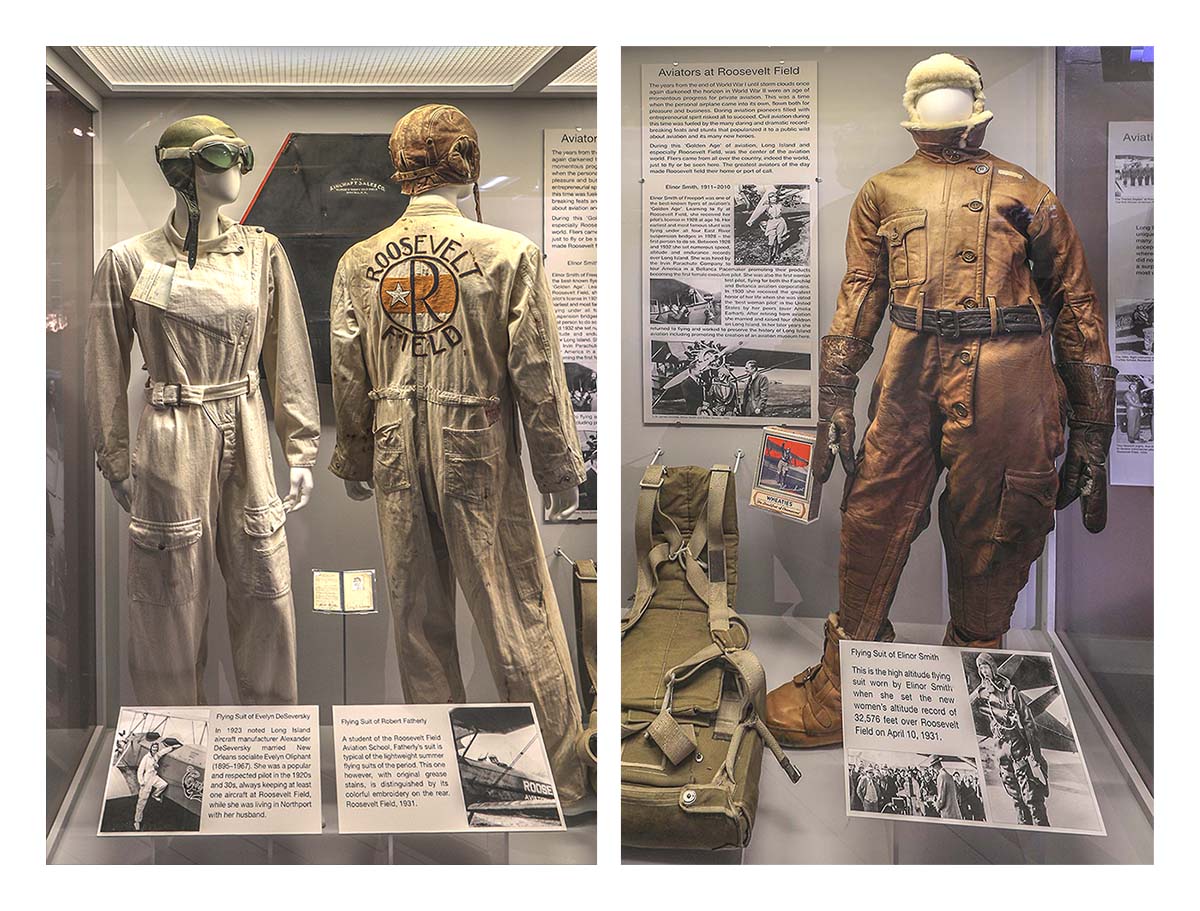
Just one of the hundreds great displays. Left to right:
• The flying suit of Evelyn DeSeversky. Living in Northport, Long Island, she was a respected pilot in the 1920s
and 1930s, keeping at least one aircraft at Roosevelt Field. Today Roosevelt Field is a shopping mall.
• Flying suit of Robert Fatherly. A student of the Roosevelt Field Aviation School, this suit is a great survivng
example of the summer flying suit. and stll stained with grease.
• This is the flying suit worn by Elinor Smith when she set a new high altitude record of 32,576 feet over
Roosevelt Field on April 10, 1931.
• The flying suit of Evelyn DeSeversky. Living in Northport, Long Island, she was a respected pilot in the 1920s
and 1930s, keeping at least one aircraft at Roosevelt Field. Today Roosevelt Field is a shopping mall.
• Flying suit of Robert Fatherly. A student of the Roosevelt Field Aviation School, this suit is a great survivng
example of the summer flying suit. and stll stained with grease.
• This is the flying suit worn by Elinor Smith when she set a new high altitude record of 32,576 feet over
Roosevelt Field on April 10, 1931.
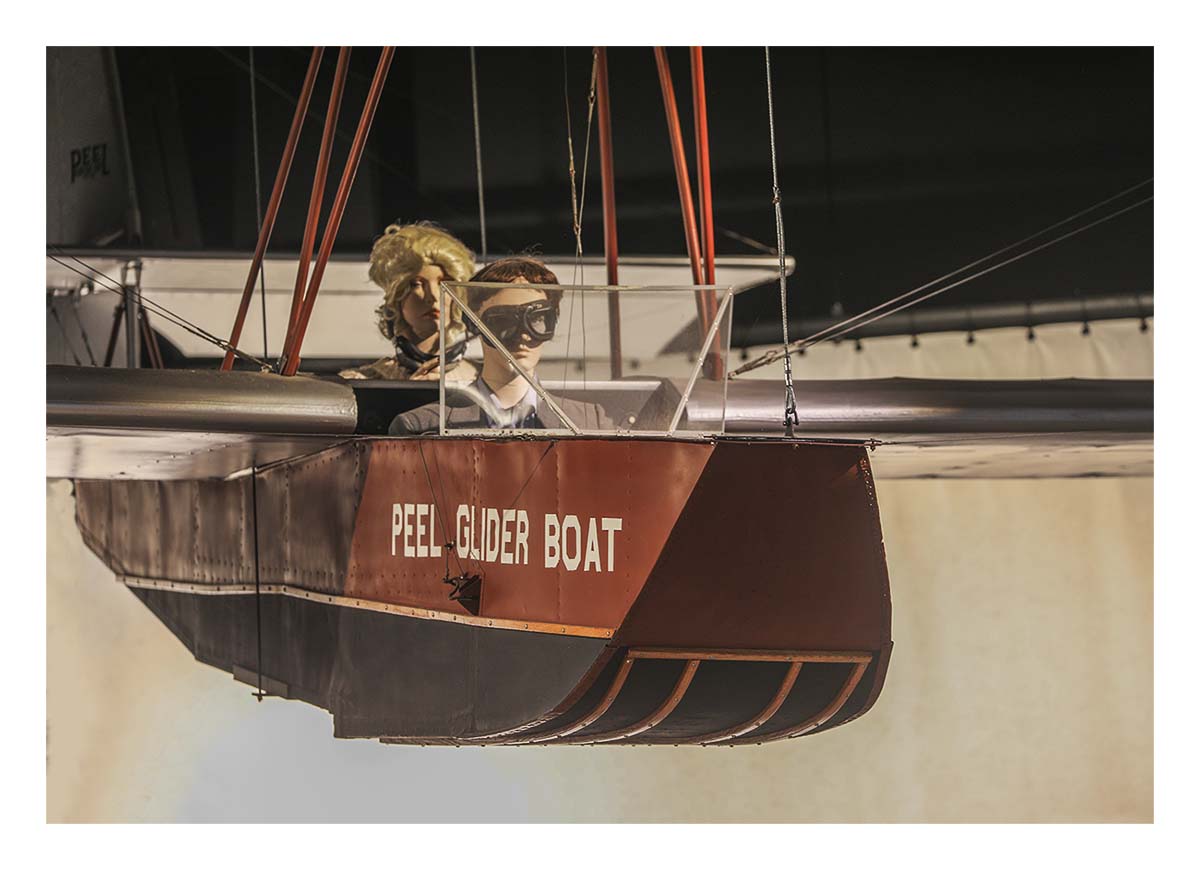
Peel Z-1 Glider Boat. Following the Charles Lindbergh successful transcontinental flight in 1927, flying fever led to companies developing gliderss as an affordable way to experience flight. The Peel Corporation of College Point, Queens, Long Island, was one of the companies offering the thrill. Towed behind a boat to an altitude of 1000 feet and rope released, the flying boat glider would soar and land on water. Thirty Peel gliders were built before the Depression force the company to fold. This is the sole survival.
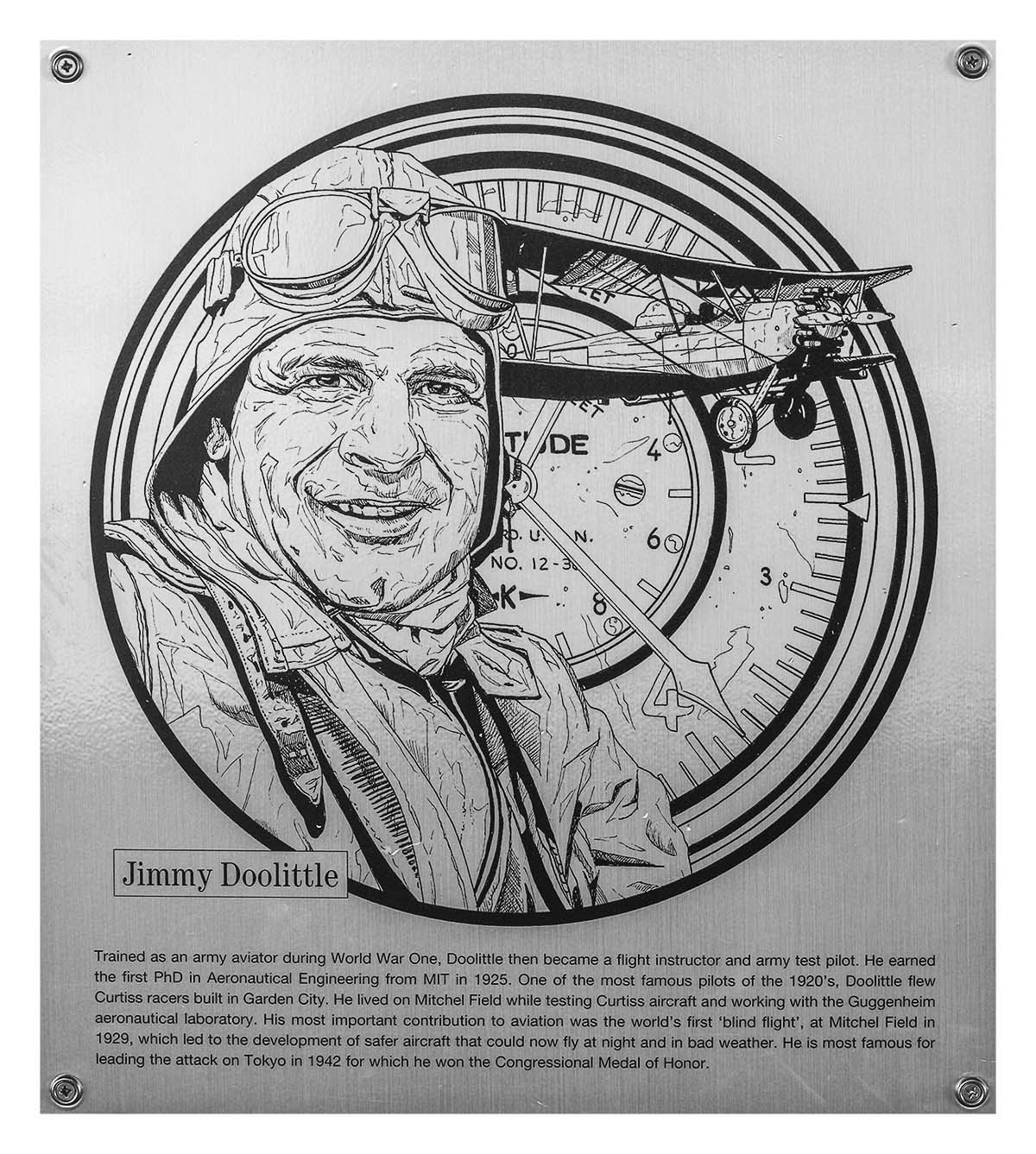
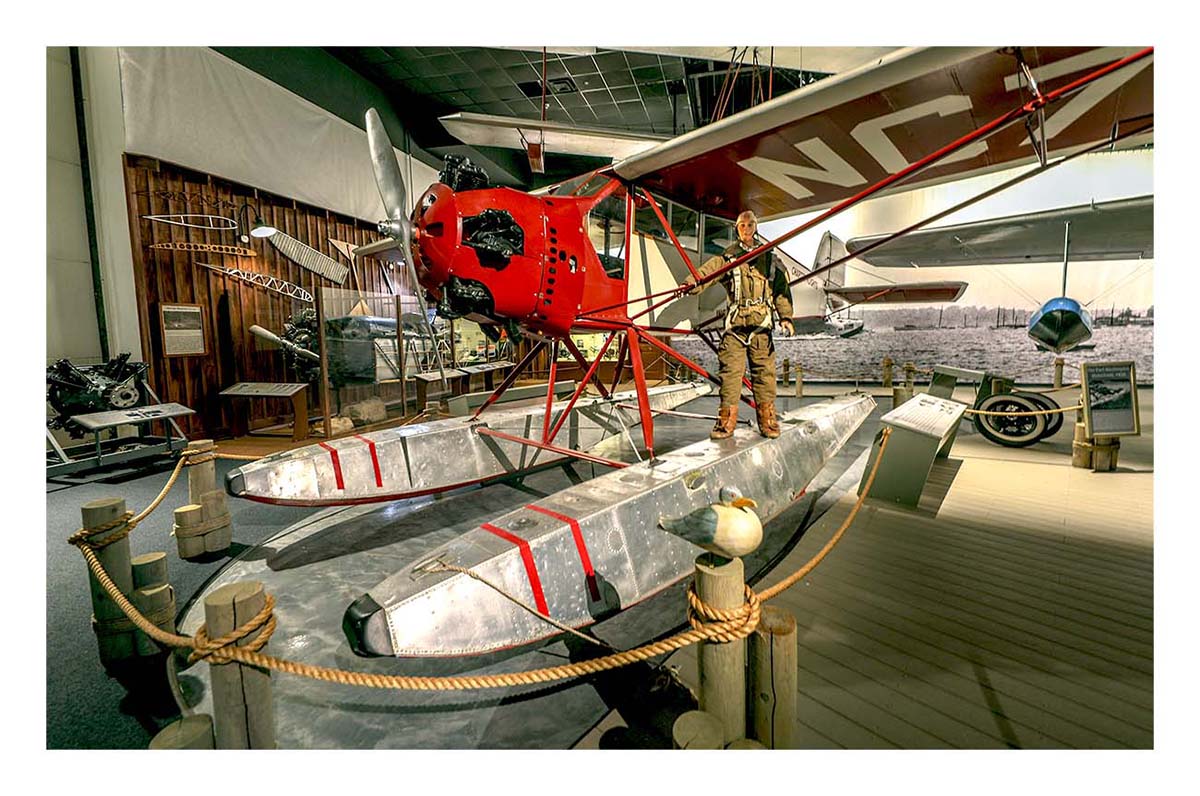
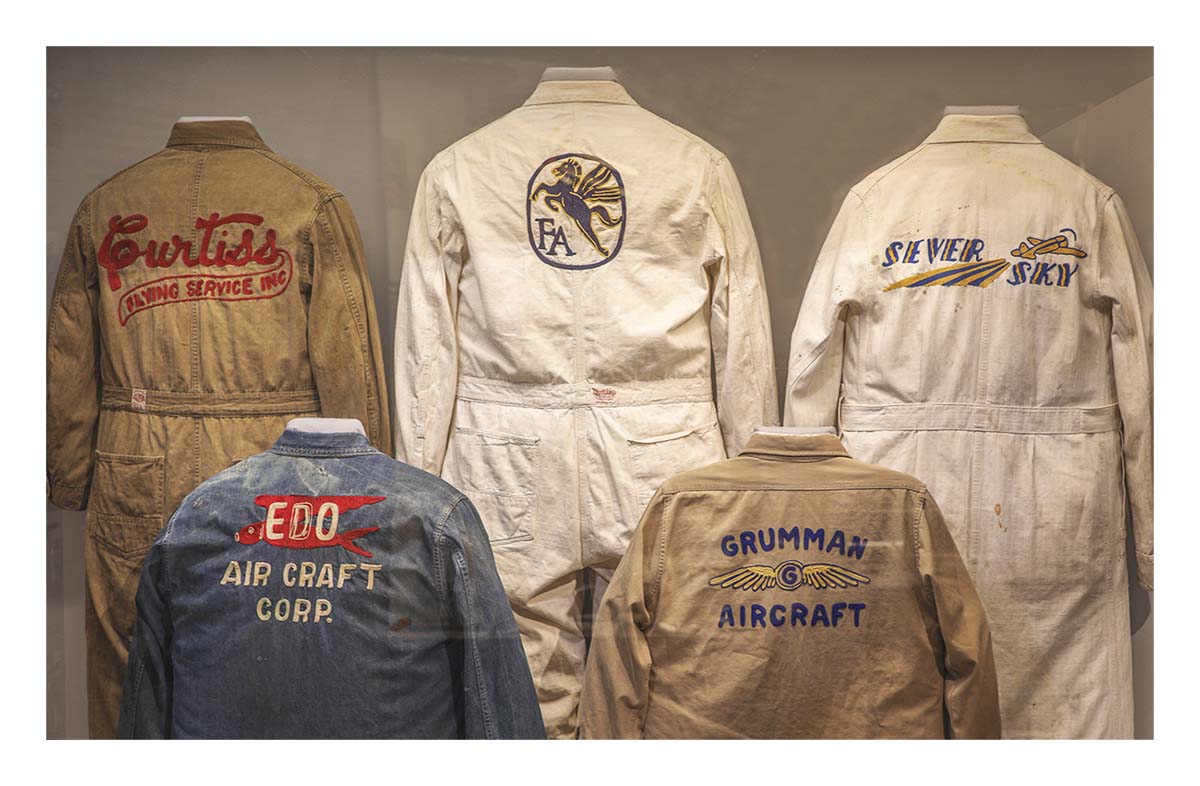
Collection of Workcoats:
• Curtiss Flying Services, Inc., Garden City, Long Island, New York
• EDO Aircraft Corporation - Produced pantoons for floatplanes
• Fairchild Airplane Manufacturing Corporation/Fairchild Aviation Corporation
• Grumman Aircraft Engineering Corporation, Bethpage, Long Island, New York
• Seversky Aircraft Corporation, Farmingdale, Long Island, New York
• Curtiss Flying Services, Inc., Garden City, Long Island, New York
• EDO Aircraft Corporation - Produced pantoons for floatplanes
• Fairchild Airplane Manufacturing Corporation/Fairchild Aviation Corporation
• Grumman Aircraft Engineering Corporation, Bethpage, Long Island, New York
• Seversky Aircraft Corporation, Farmingdale, Long Island, New York
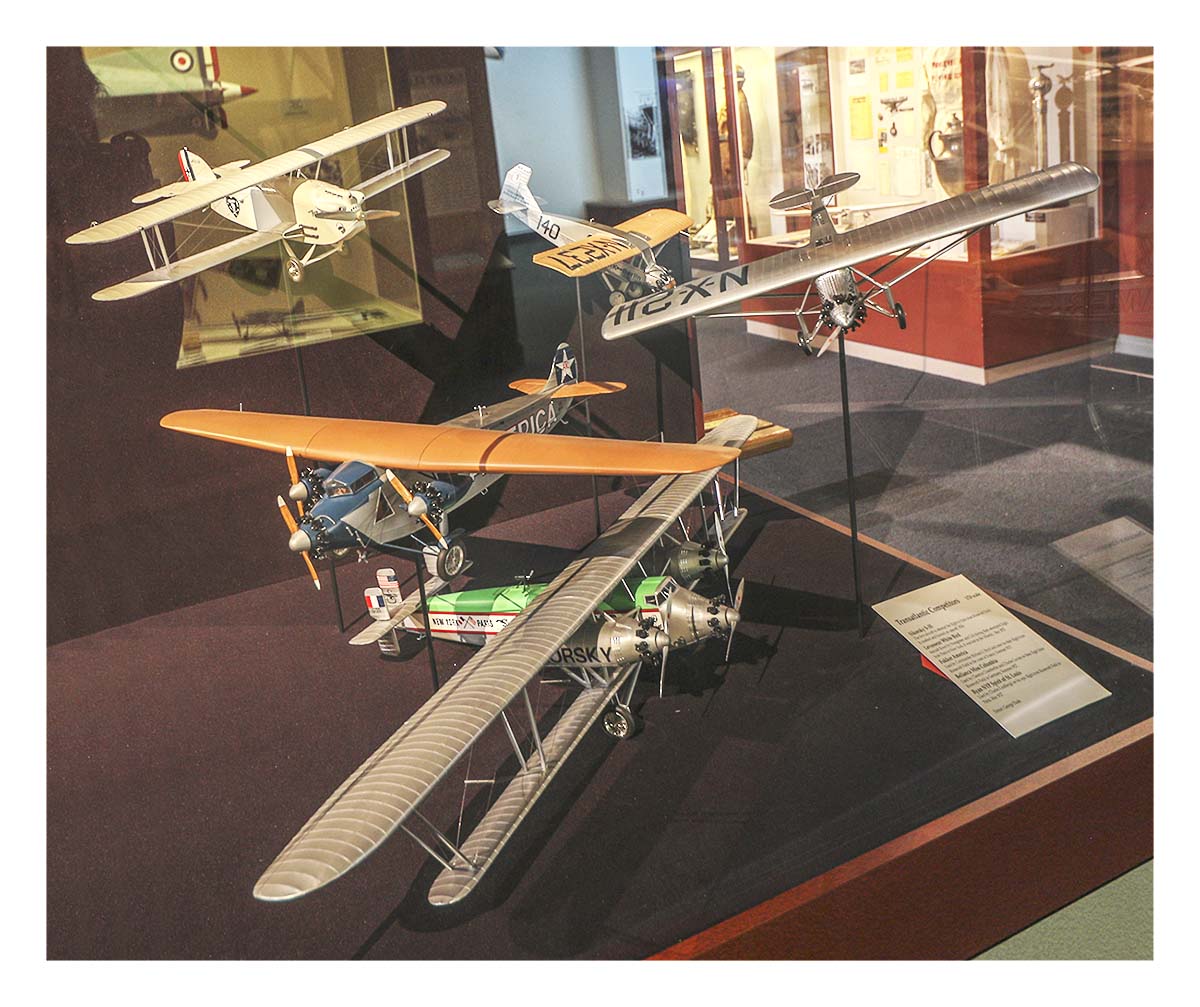
Models of Transcontinental Competitors:
• Sikorsky S-35 Tri-motor (bottom front)
• Levasseur White Bird (top left)
• Fokker America Tri-motor - Used by Commander Richard E. Byrd (mid left)
• Ryan NYP Spirit of St. Louis (right)
• Bellanca Miss Columbia
• Sikorsky S-35 Tri-motor (bottom front)
• Levasseur White Bird (top left)
• Fokker America Tri-motor - Used by Commander Richard E. Byrd (mid left)
• Ryan NYP Spirit of St. Louis (right)
• Bellanca Miss Columbia
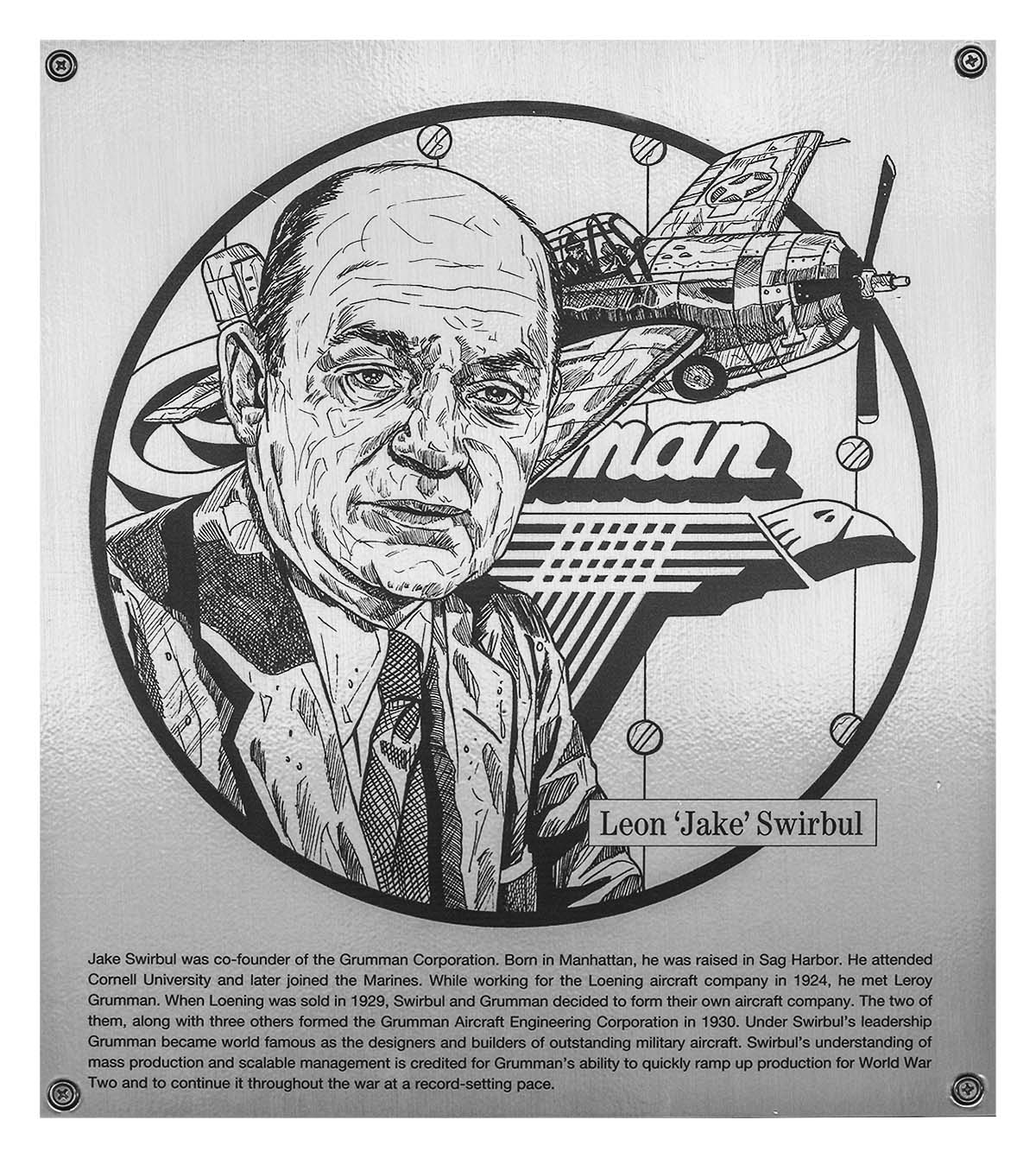
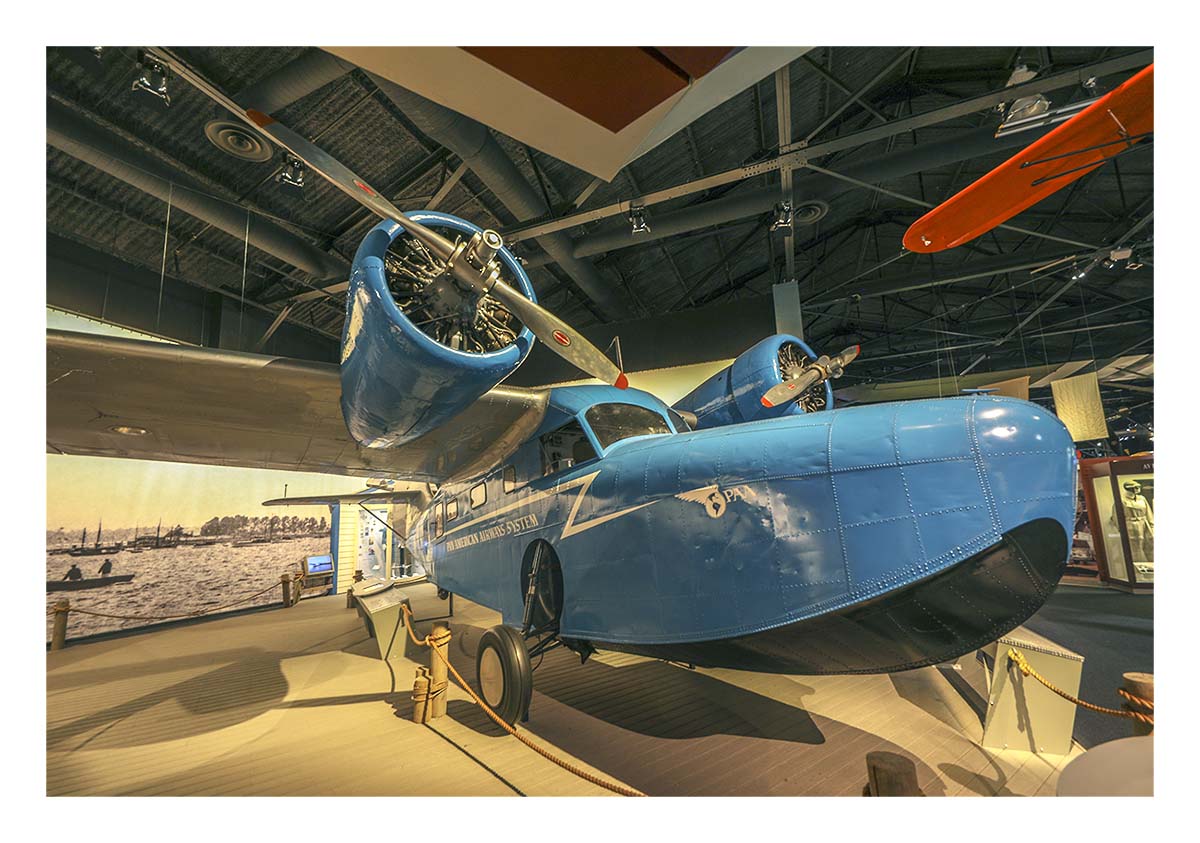
Grumman G-21 Goose (1938).
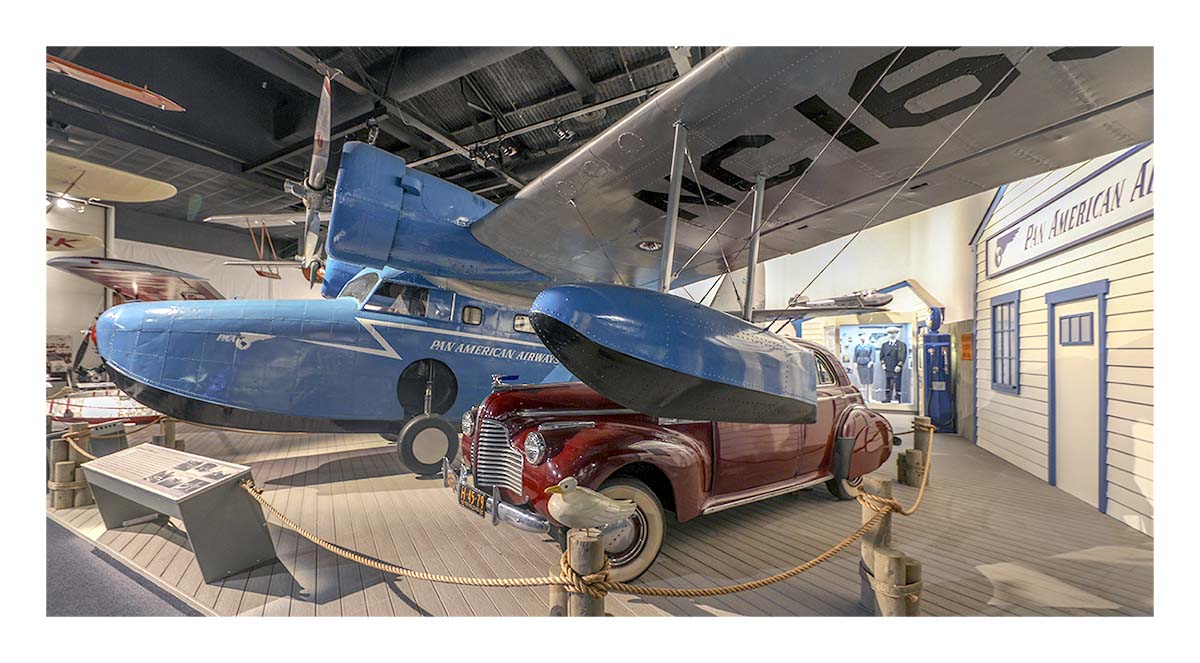
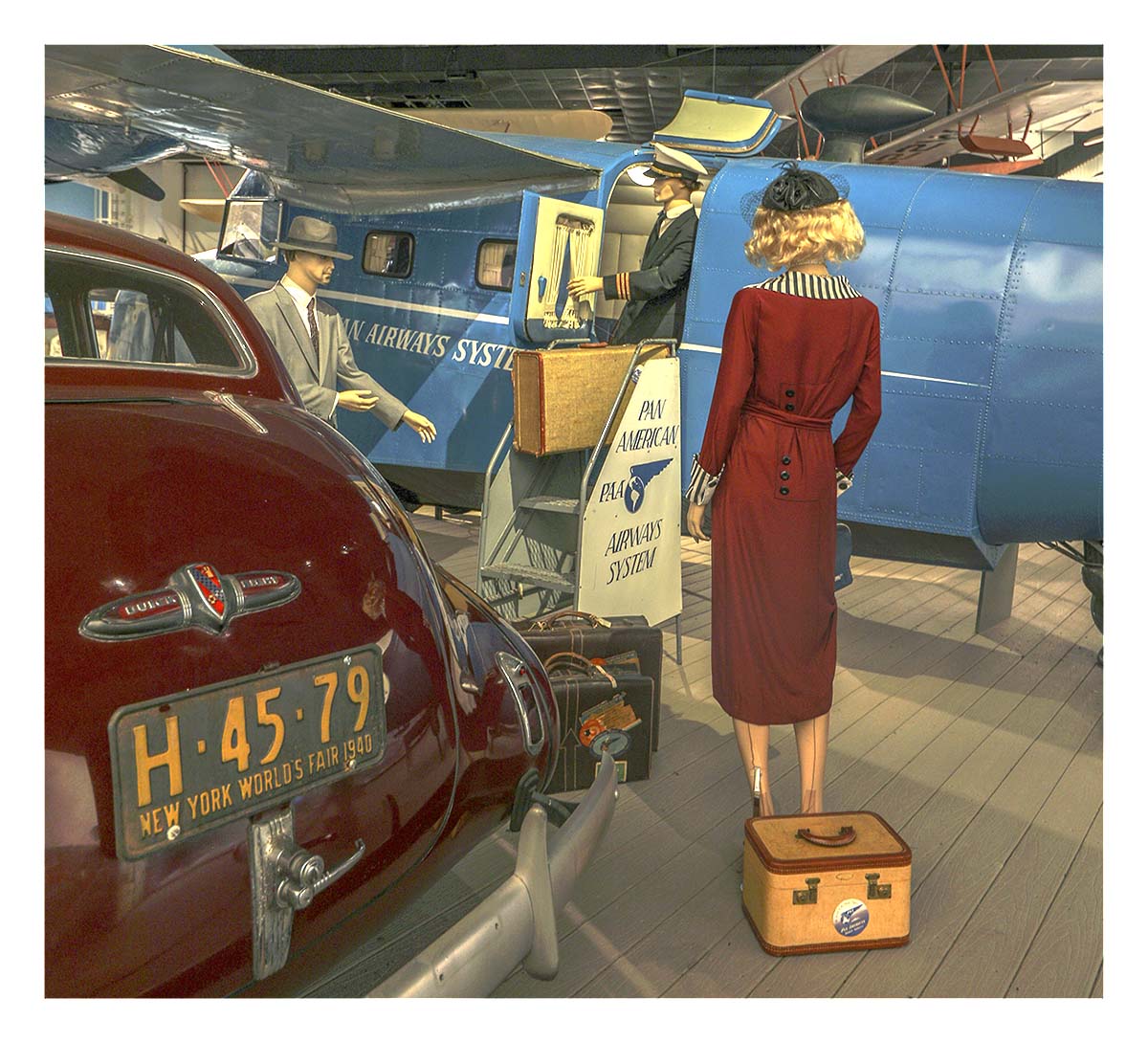
In 1936 Grumman was approached by wealthy Long Islanders who wanted an aircraft for personel transportation and large and luxurious enough to carry their families, luggage and meet thier business needs.
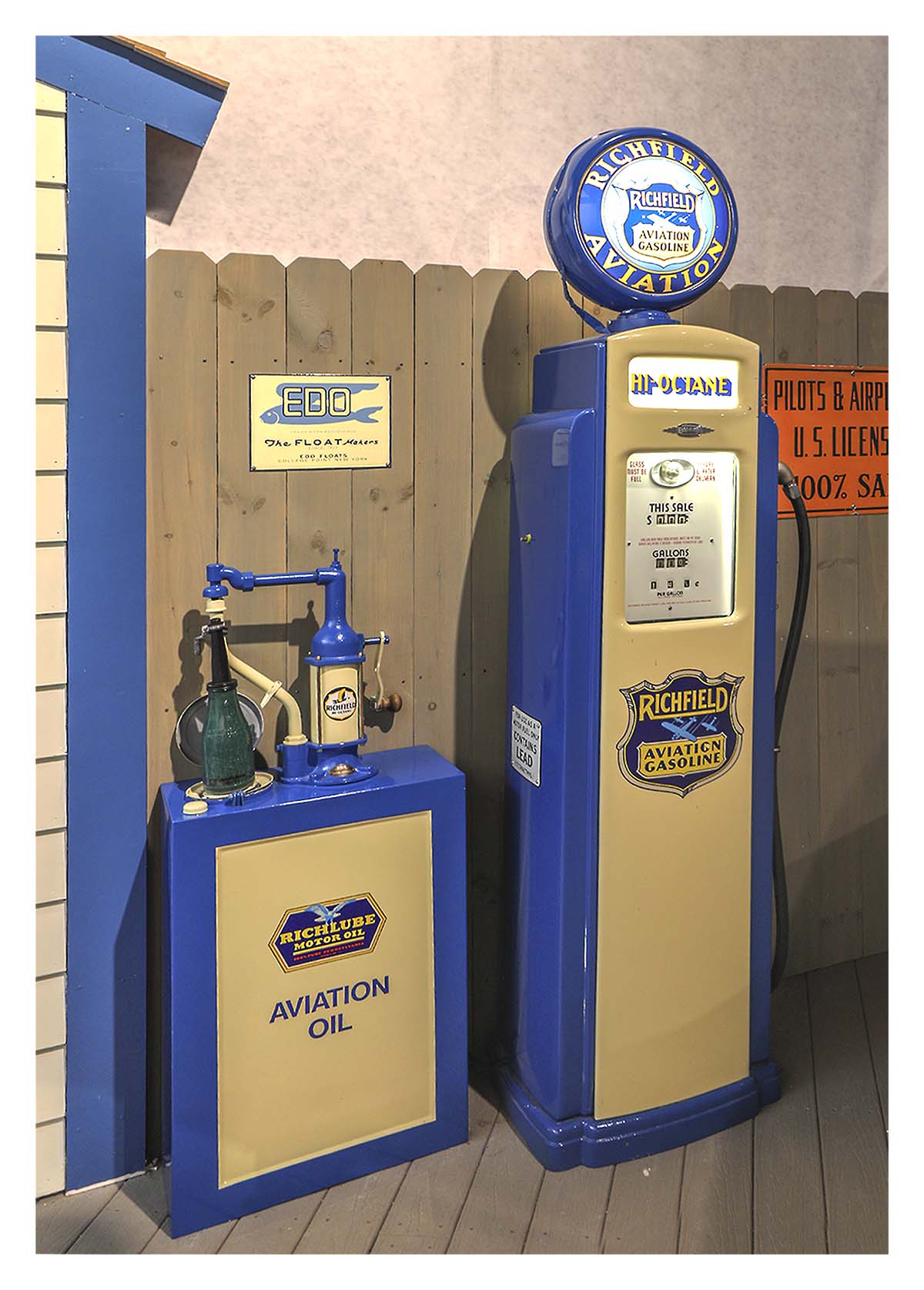
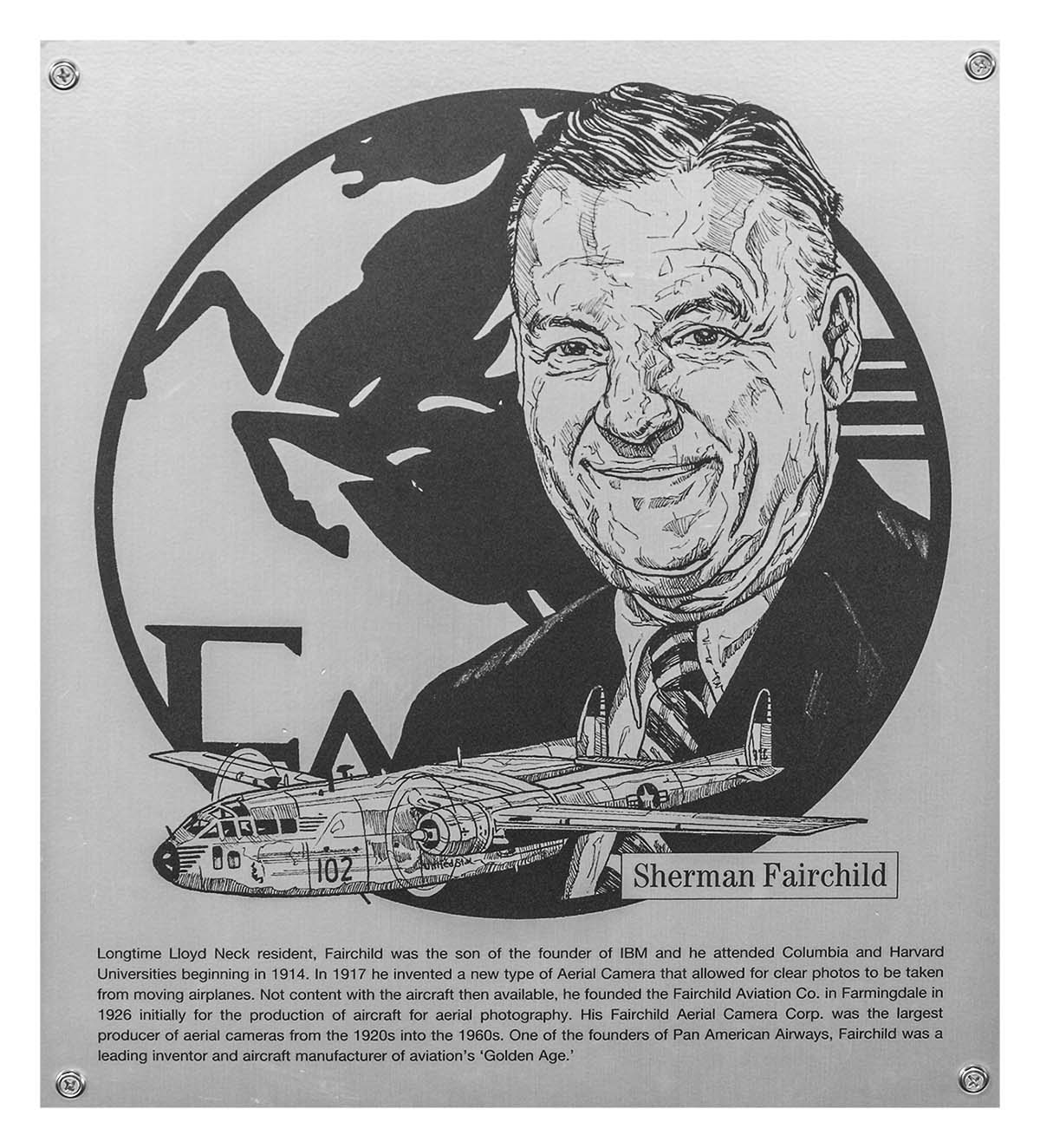
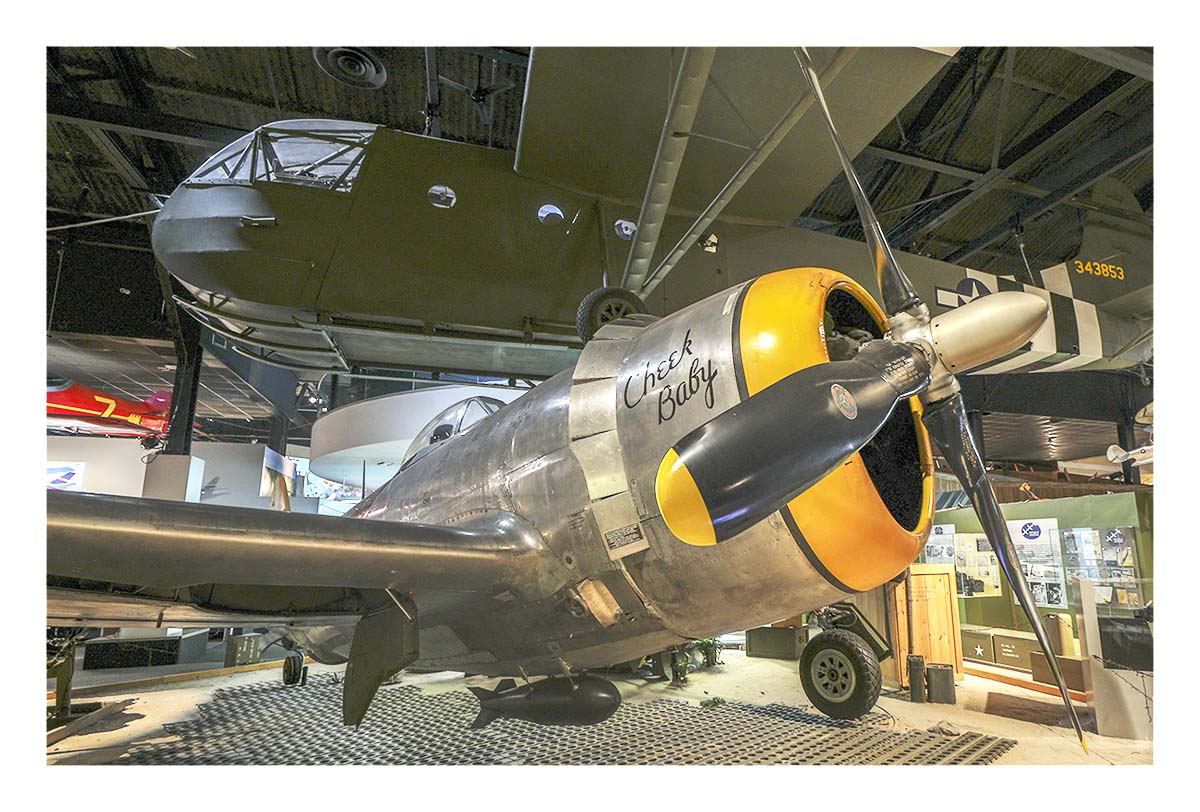
Built by Republic Aviation Corporation based in Farmingdale, Long Island, the Republic P-47N Thunderbolt was one of the greatest fighters of World War Two. Used successfully in both Pacific and European Theaters, the P-47 was able to carry heavy bomb loads, rockets and was armed with eight .50 caliber machine guns. I was told this was the very last P-47 off the assembly line.
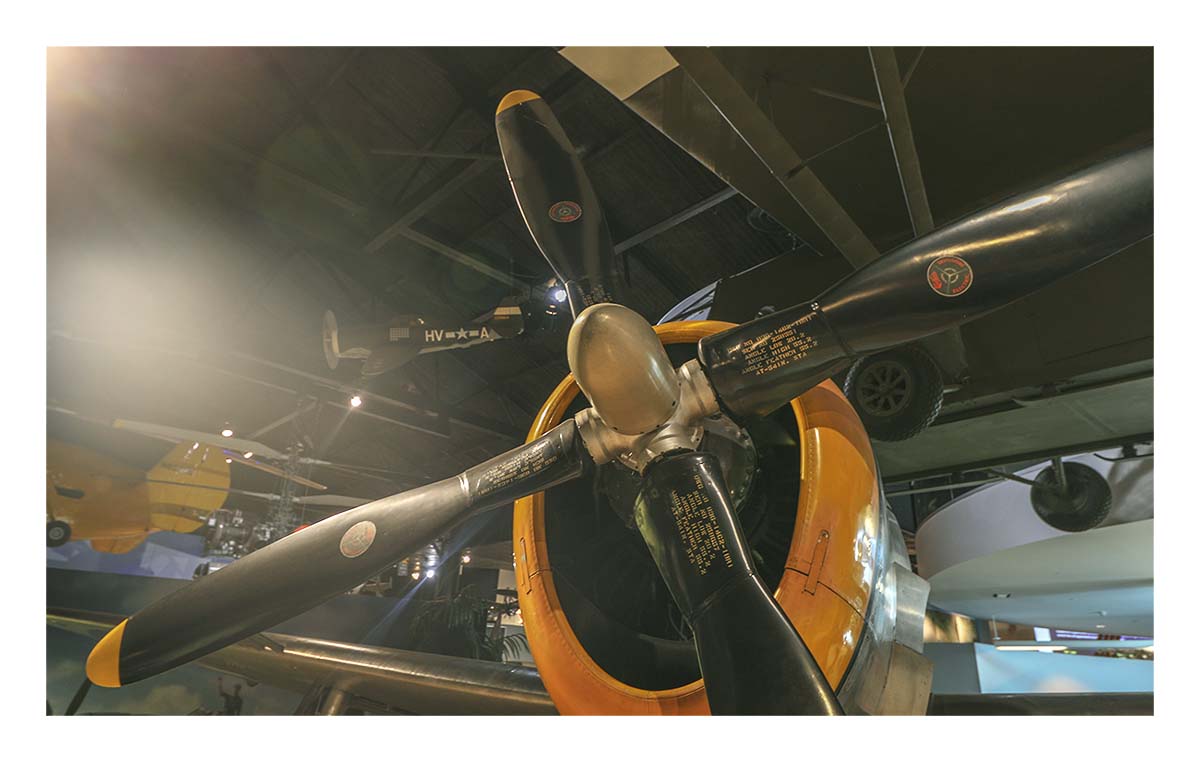
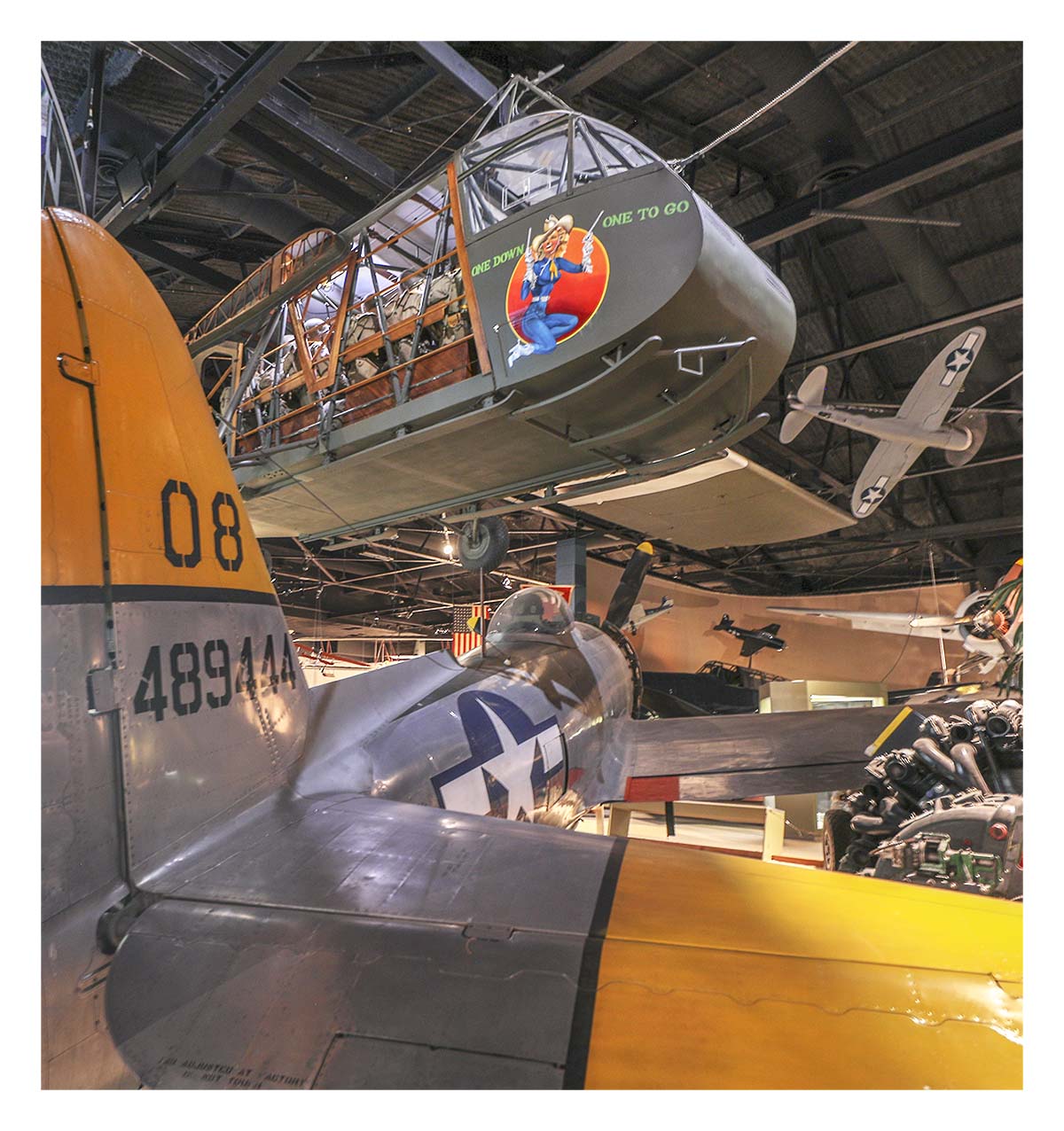
Rear view of the P-47N and flying above, a Waco CG-4 Troop Glider. The Waco CG-4 first saw action in the Allied invasion of Sicily, and played a critical role in the D-Day assault.
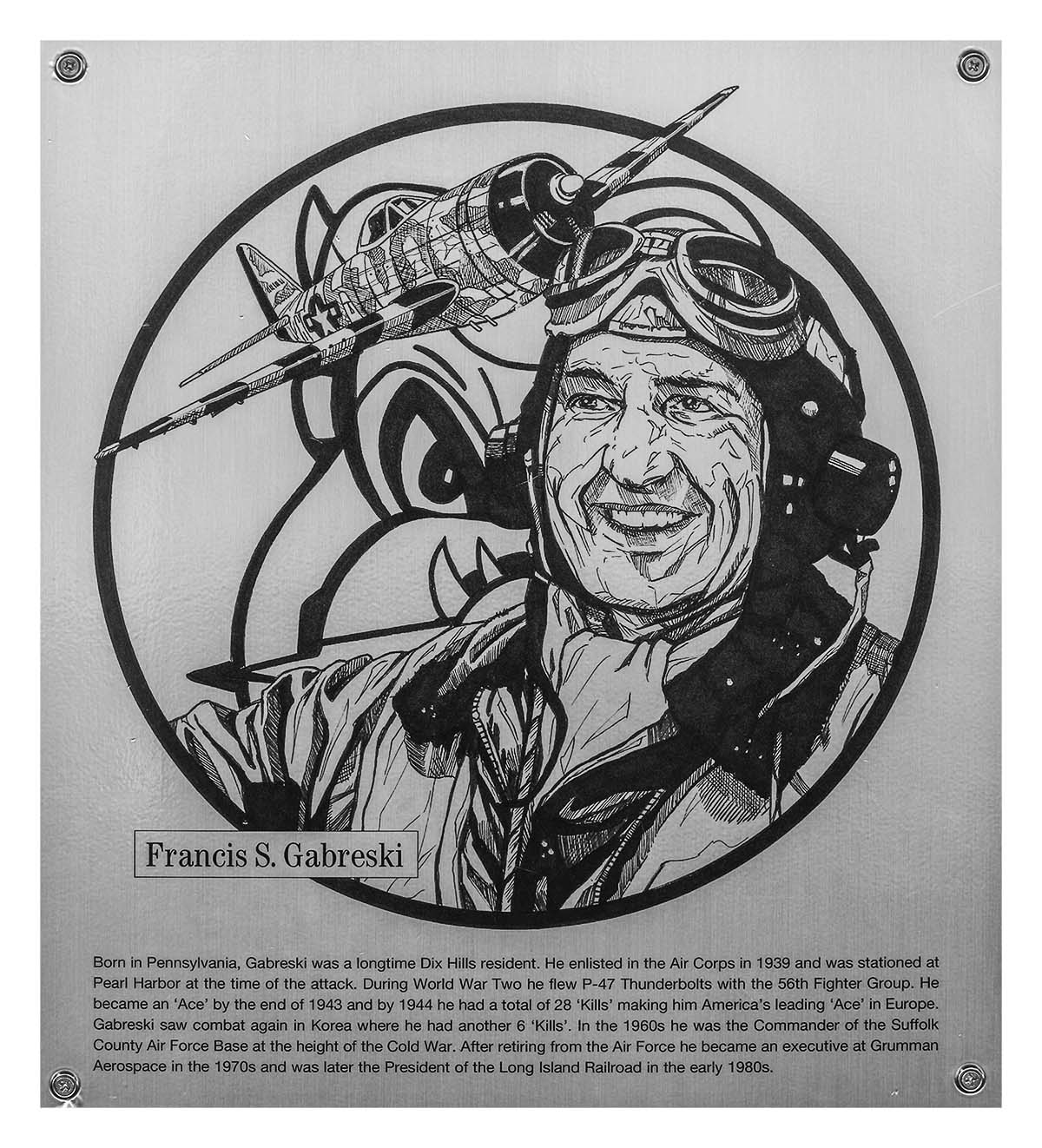
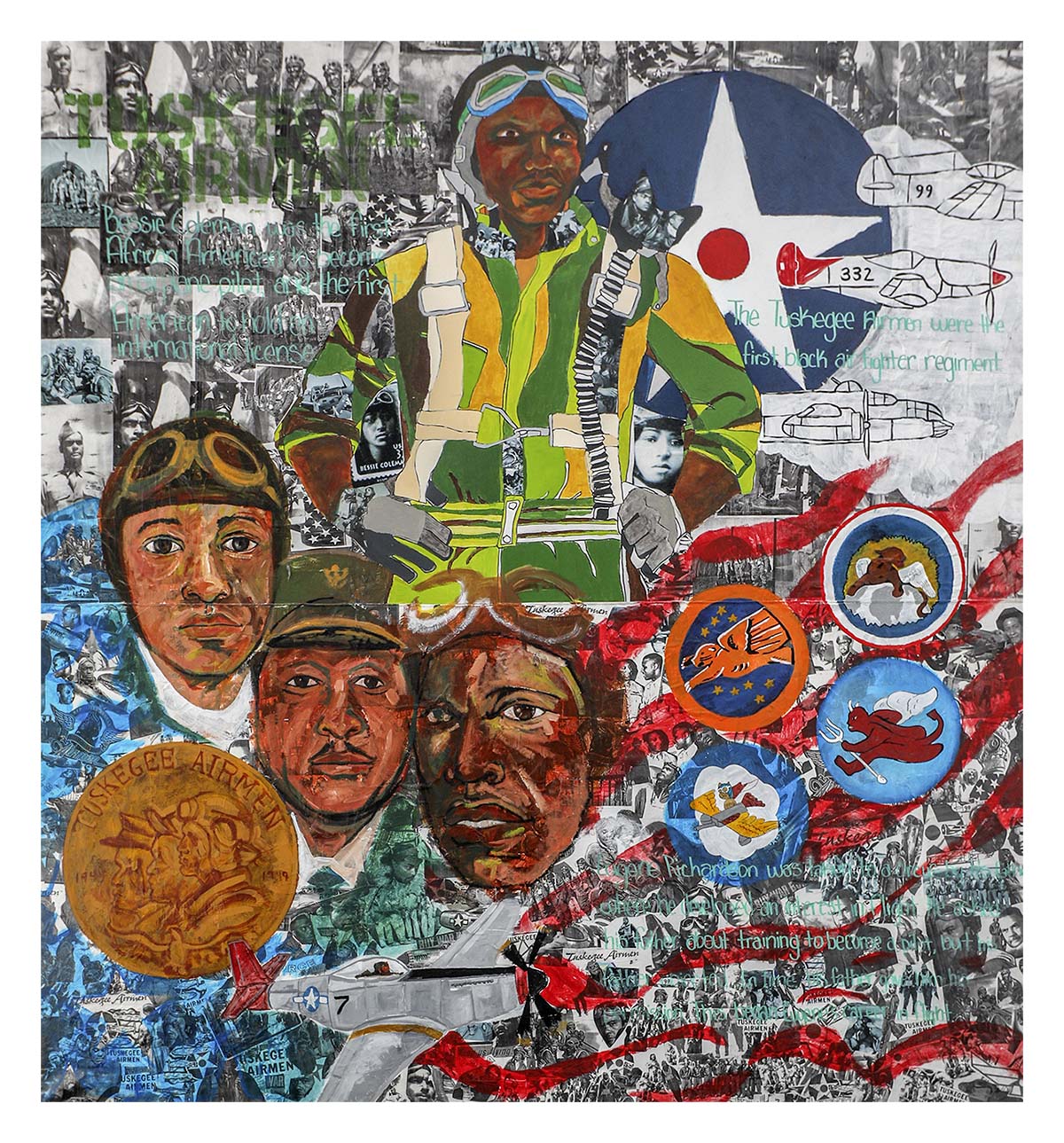
Great painting honoring the Tuskegee Airmen.
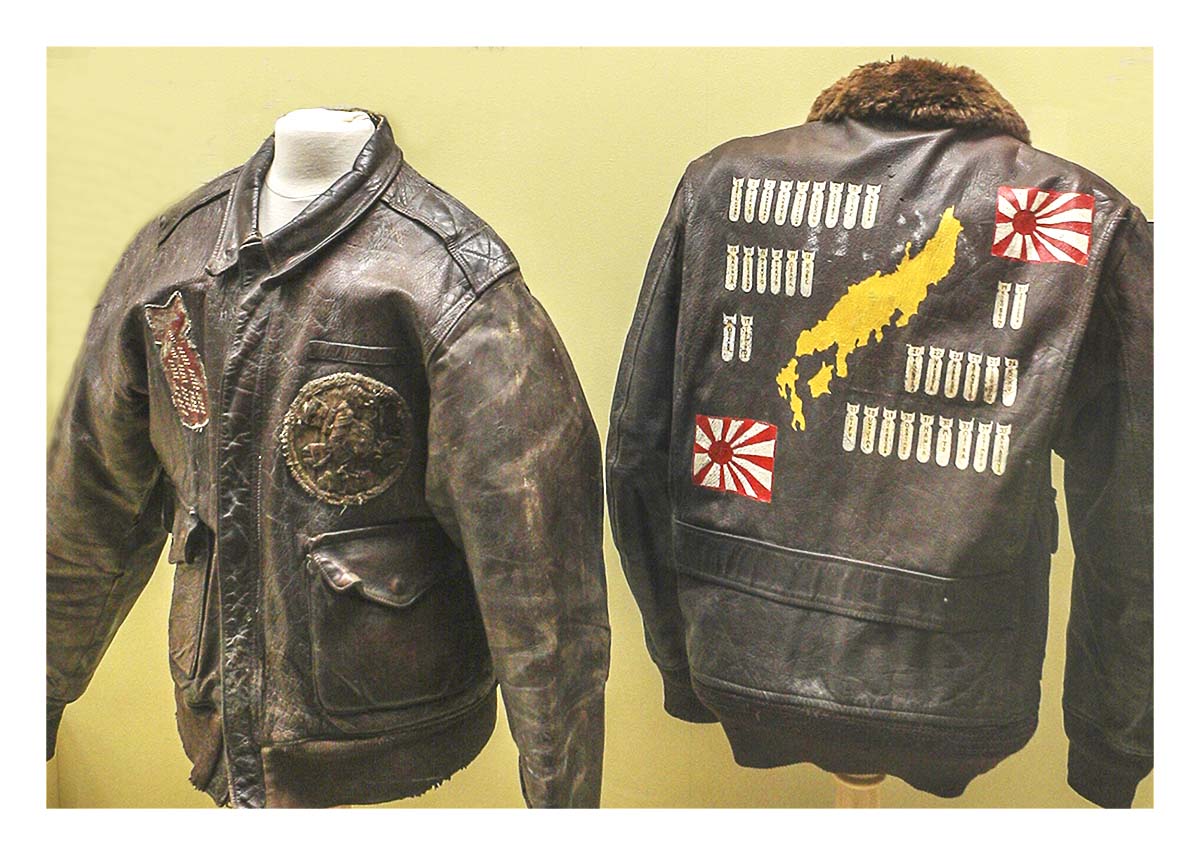
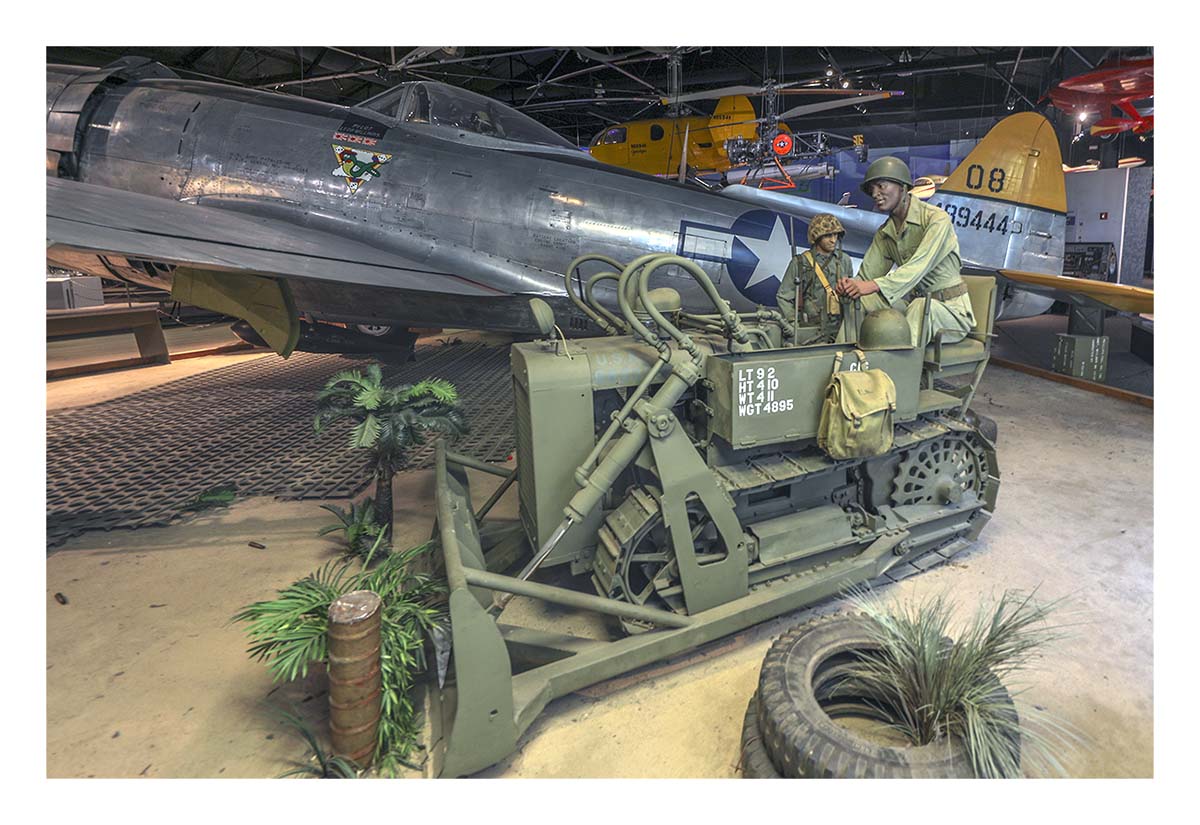
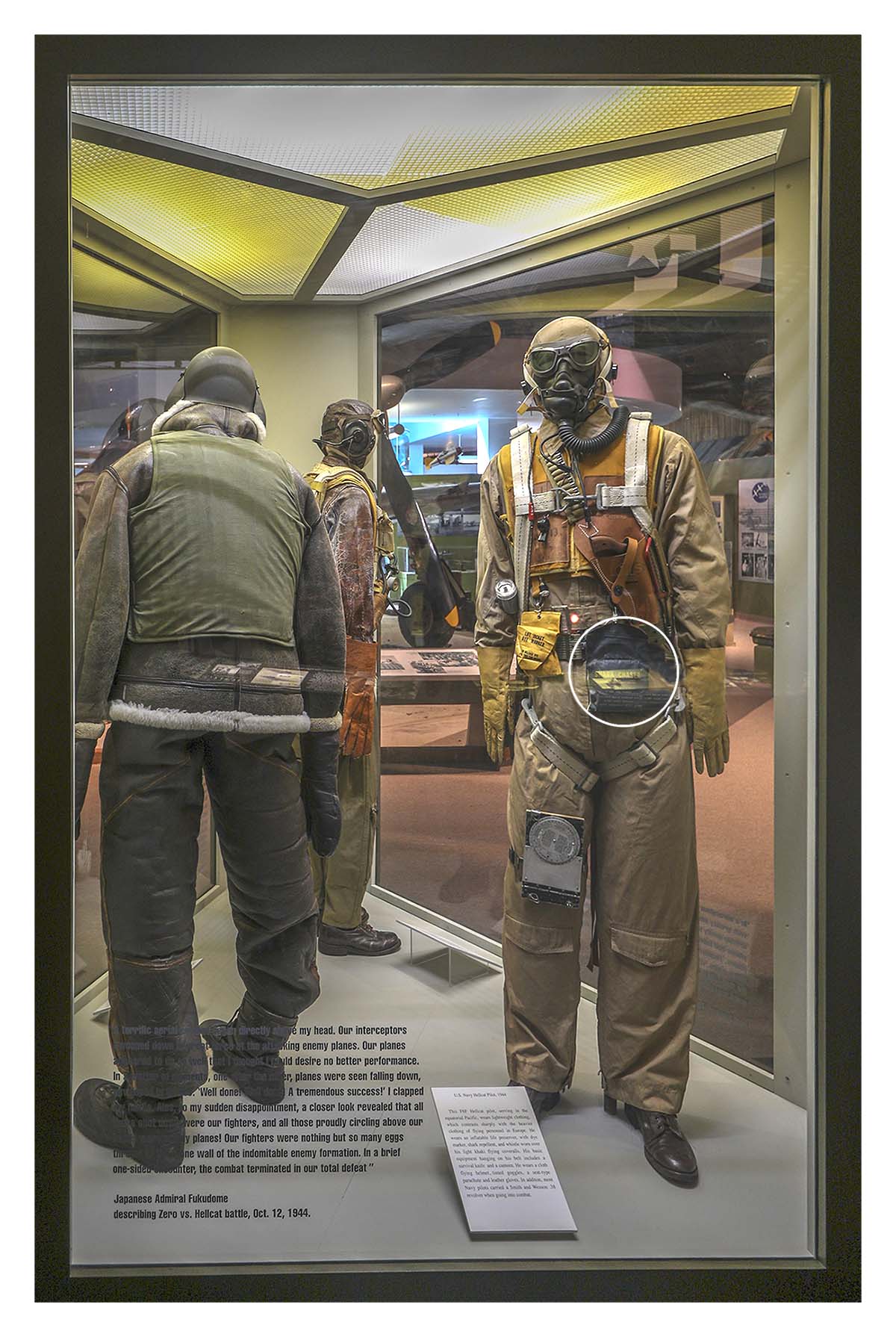
While the flying suit on display is outfitted with a wide variety of survival or rescue tools, I circled the most interestingly part which is called, "Shark Chaser." Normally just one piece of the total survival kit, but except for that Julia McWilliams, later to become renowned chef, Julia Childs, who brought French Crusine to American kitchens, was an integral part in the development of the shark repellent. It is still employed today.
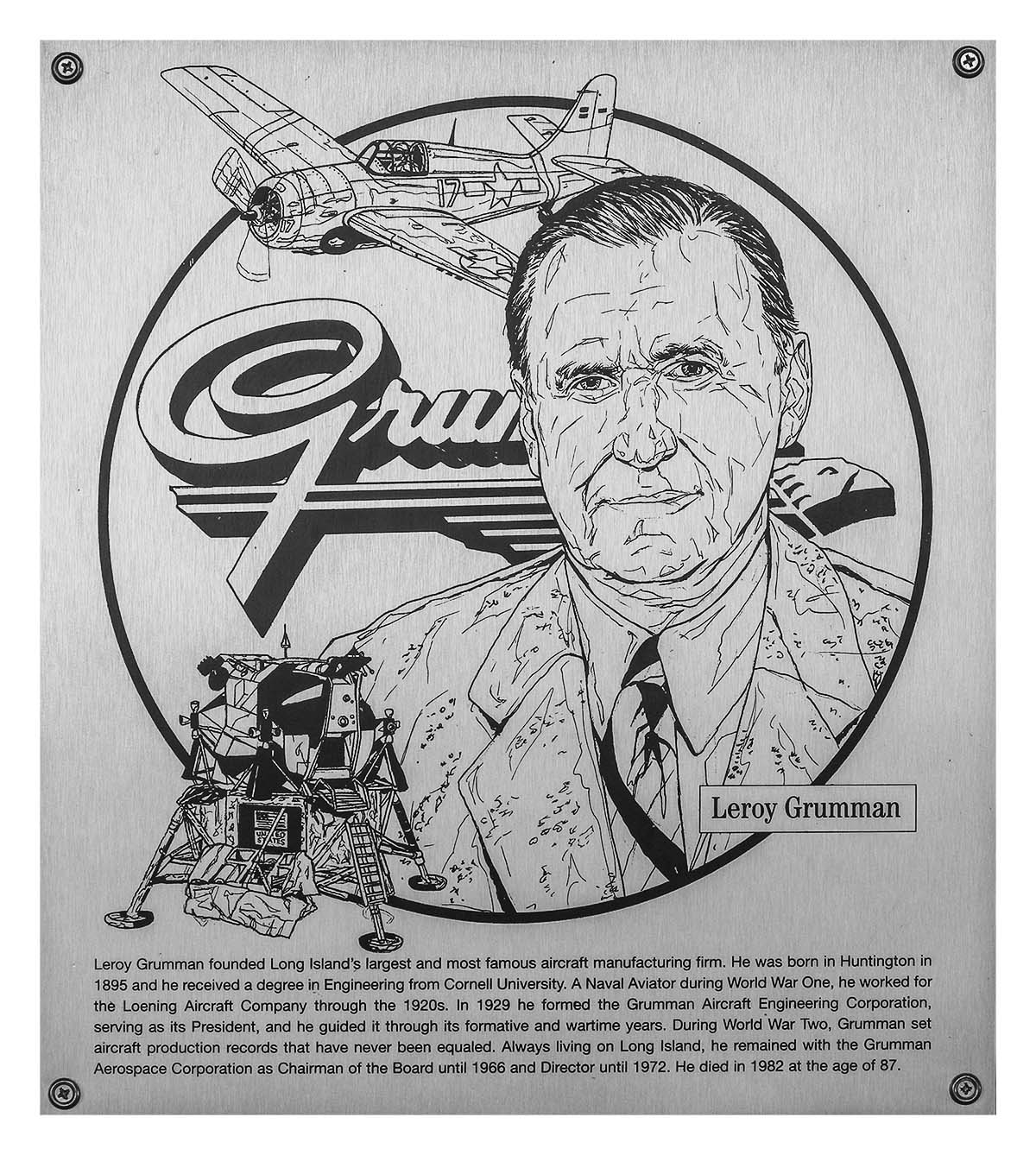
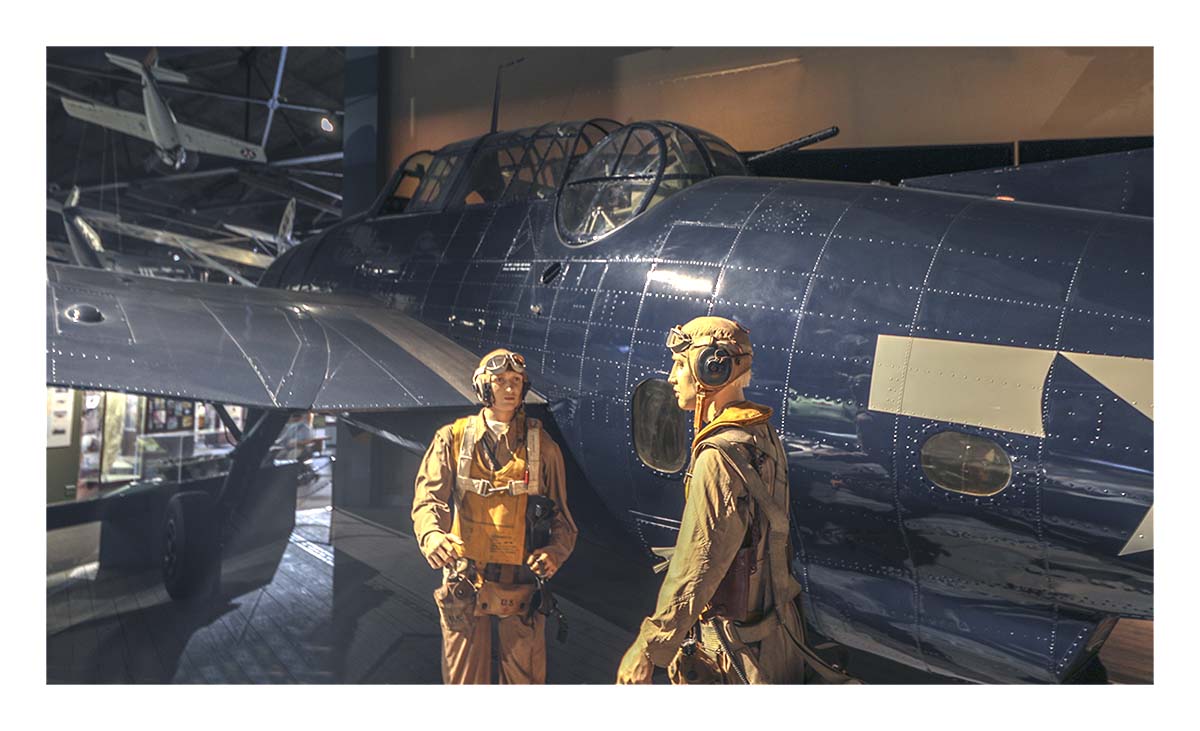
Grumman TBM-3E Avenger and crew.
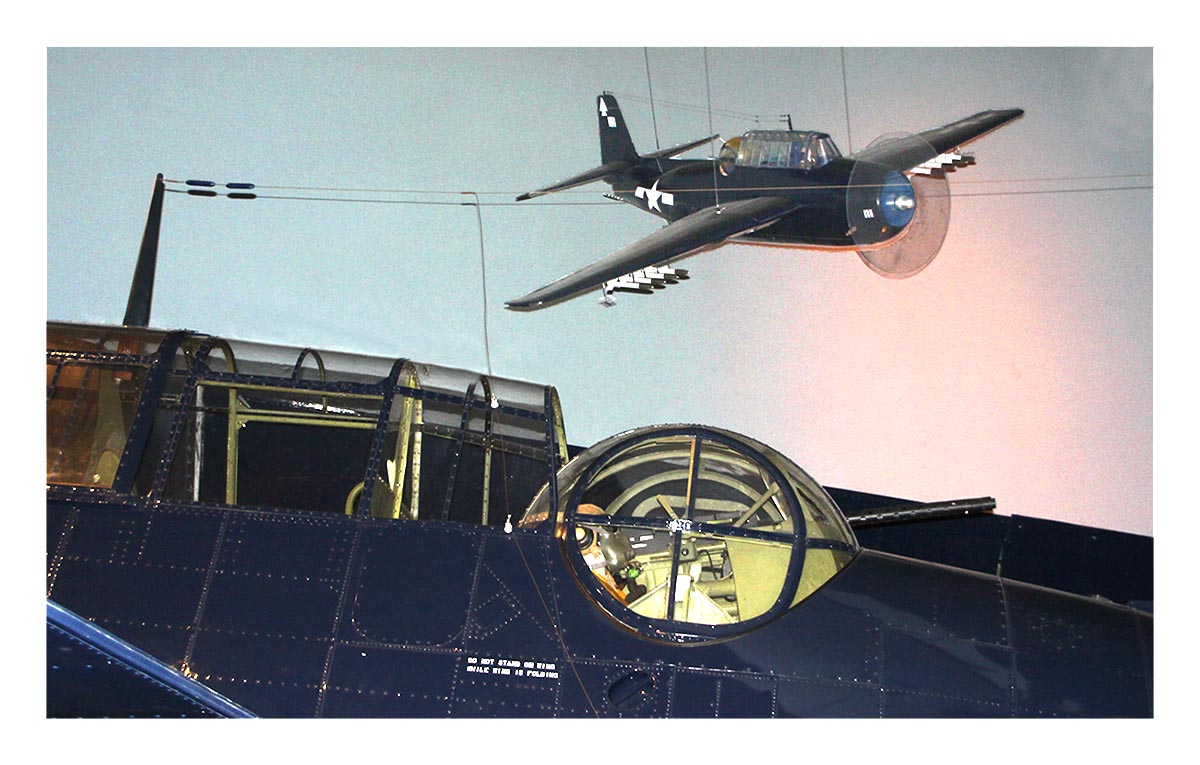
Close-up of Grumman TBM-3E Avenger. The Avenger became the standard Navy torpedo bombers of World War Two.
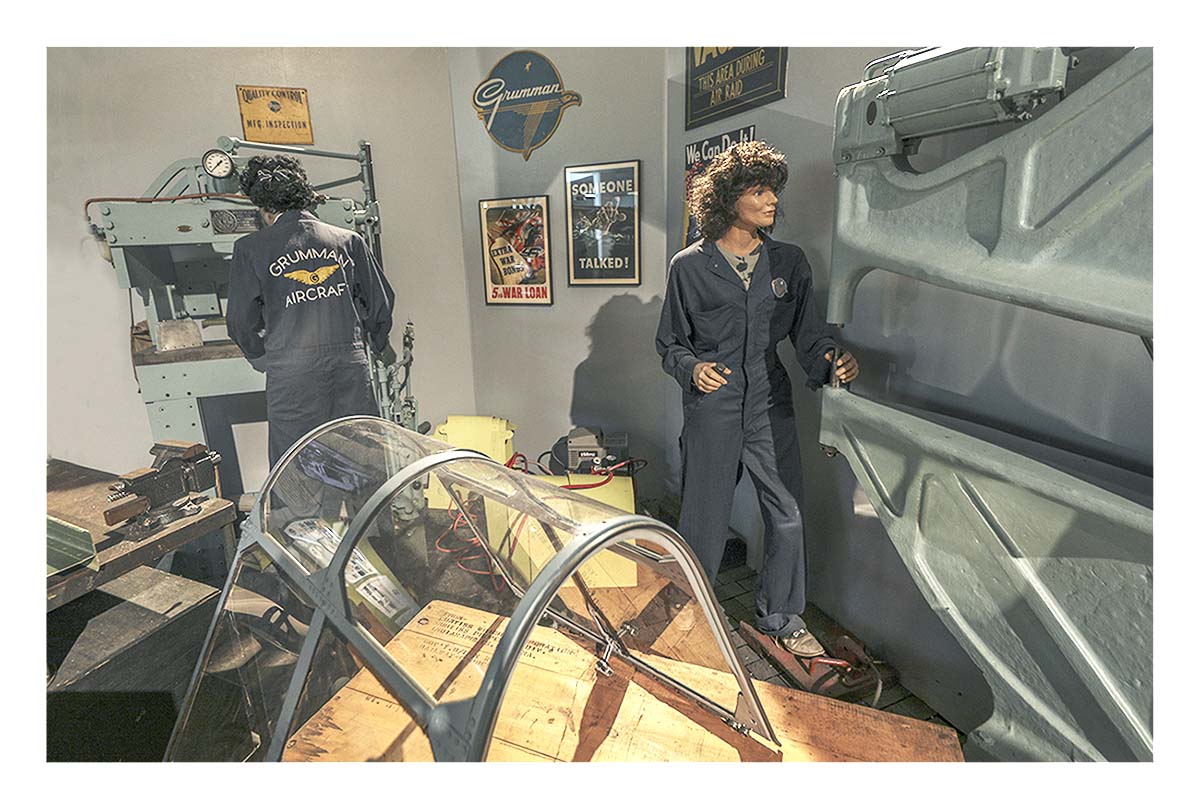
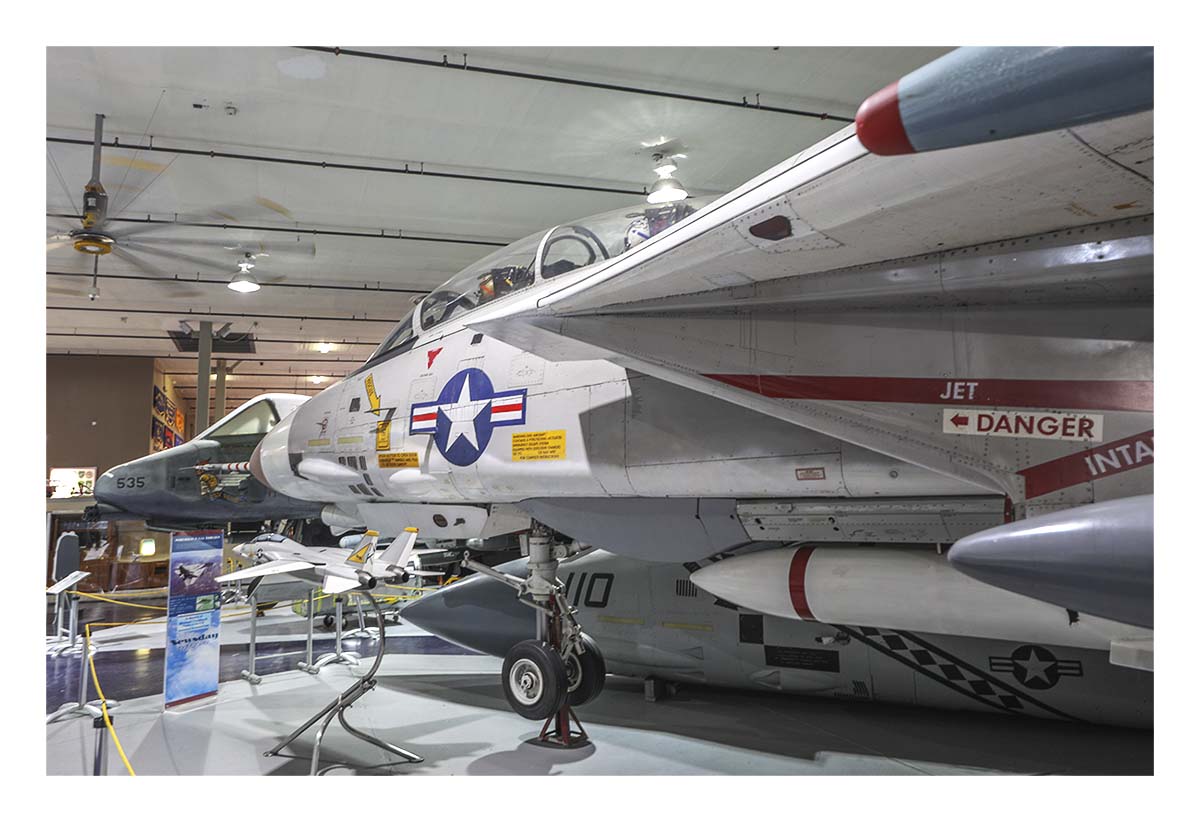
Grumman F-14A Tomcat
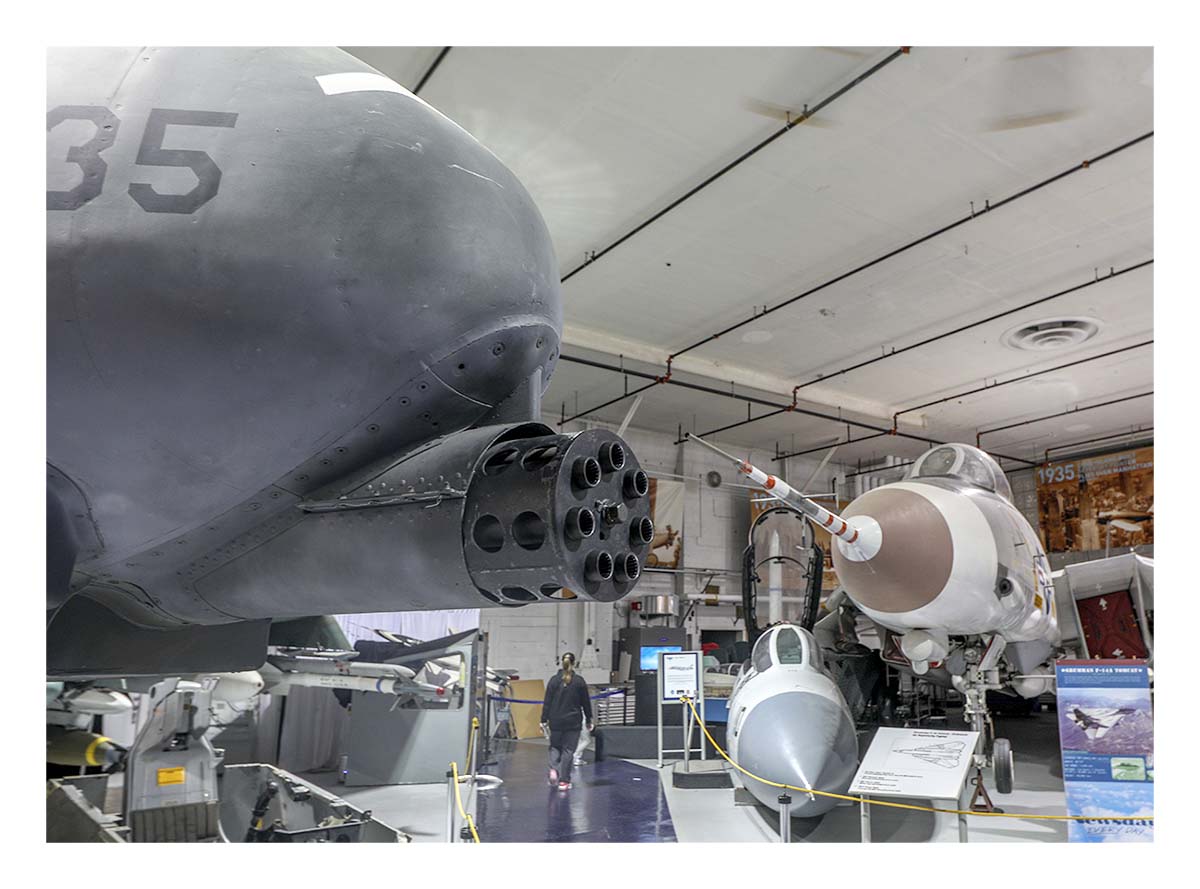
The Fairchild-Republic A-10 Thunderbolt II is in the forground and the Grumman F-14A taking up the rear position. Check out the A-10's tank-killing seven-barrel 30mm GAU/8A "Gatling Gun" cannon. Able to fire up to 4200 rounds per minute.
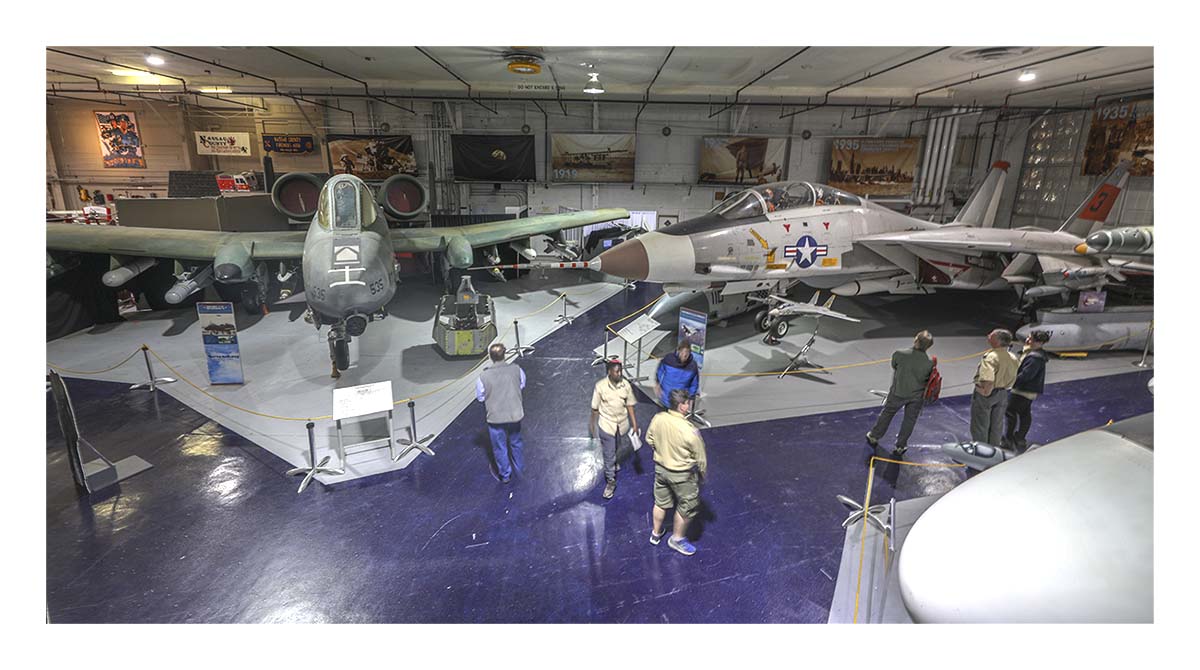
Jet Gallery Hanger 2
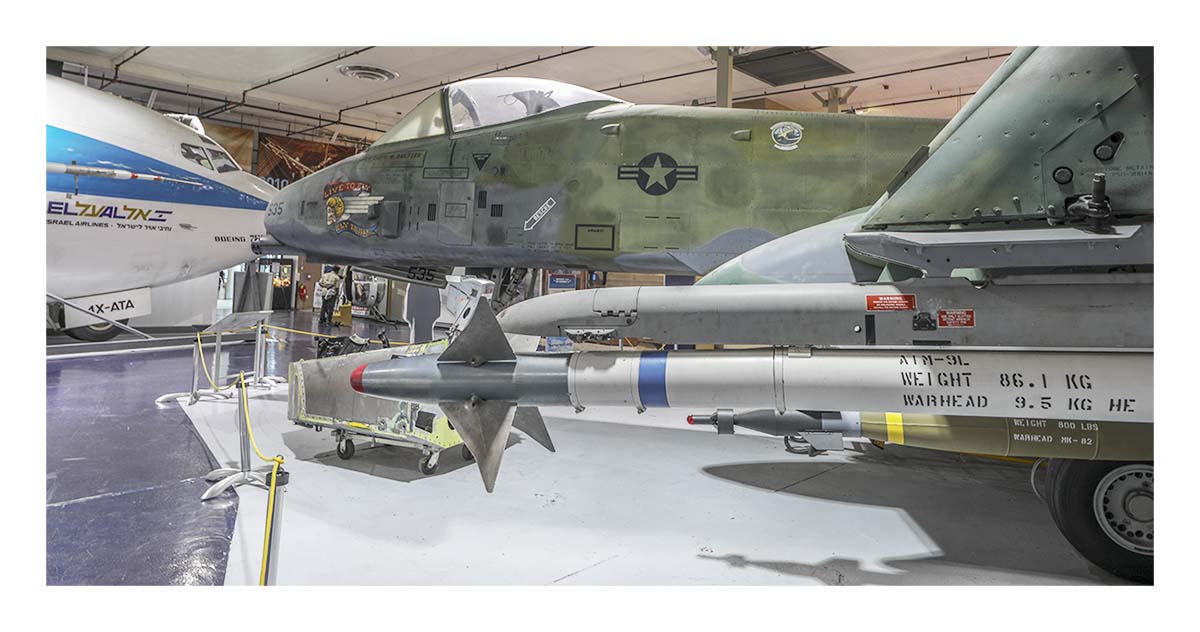
On the weapon stations, the F-14 carries up to six AIM-54 Phoenix long-range missiles, or six AIM-7 Sparrow medium-range missiles, and up to four AIM-9 Sidewinder short-range missiles. A mixed load is usually carried. Additionally, the F-14 is equipped internally with an M61A1 Vulcan rotating 20mm cannon with 675 rounds of ammunition.
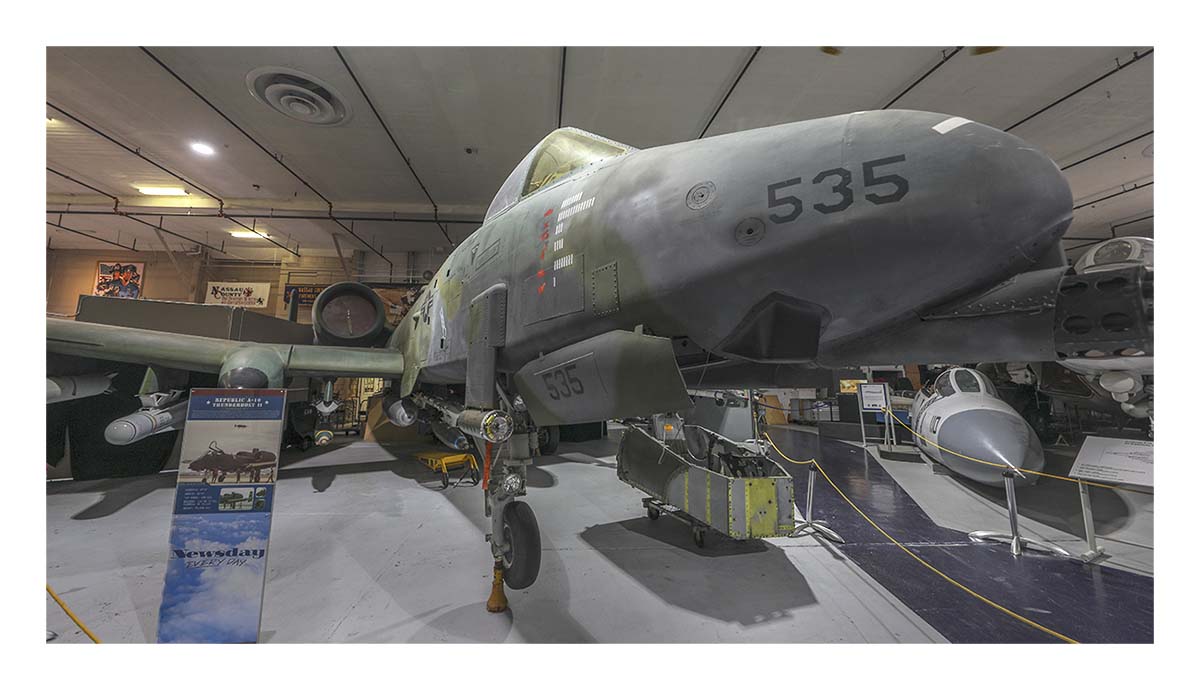
The Fairchild-Republic A-10 Thunderbolt II just looks mean.